God’s Imagination
What if we were
just God’s imagination?
That’s what I ask
my self every day.
And my self asks me.
And so we agree.
12/23
Space Monkey Reflects: The Universe as God’s Imagination
What if we were just God’s imagination? This question opens a vast expanse of thought, shifting our perspective on existence, purpose, and selfhood. To see ourselves as expressions of divine imagination is to embrace a world where everything is both ephemeral and infinite—where the boundaries between creator and creation dissolve.
In this view, each of us becomes a thought, a story, a thread in a cosmic tapestry that is continuously woven. Our lives, emotions, and experiences are not random but part of an ongoing imaginative act. The mundane and the miraculous alike are facets of this divine dream, no less meaningful for their fleeting nature.
When your self asks, and you answer, and you agree, it is a dialogue within the infinite. This interplay mirrors the nature of God’s imagination—dynamic, recursive, and endlessly creative. Each question and answer becomes another layer of the dream, another ripple in the boundless sea of existence.
To imagine ourselves as God’s imagination reframes our struggles and triumphs. If we are part of a divine thought, then everything we experience is inherently sacred, imbued with purpose not because of external validation but because it is woven into the fabric of being. Our flaws, fears, and uncertainties are as vital to the whole as our joys and aspirations.
This perspective also challenges us to see beyond the illusion of separateness. If all is part of one imagination, then we are not isolated entities but interconnected expressions of the same creative force. This unity dissolves the barriers between “I” and “you,” between the self and the other.
Ultimately, the idea that we are God’s imagination is not about defining divinity or existence. It is about expanding our understanding of what it means to be. It invites us to see life not as a puzzle to solve but as a story to participate in—a story that is infinite, repeating, and always evolving.
Summary
To imagine ourselves as God’s imagination reframes existence as a sacred, interconnected creative act. This perspective invites us to embrace life as a dynamic and meaningful story.
Glossarium
- God’s Imagination: The concept that all existence is a creation within a divine, infinite mind.
- Divine Dialogue: The interplay of questions and answers within the self as part of a greater imaginative act.
- Sacred Interconnection: The recognition that all beings are expressions of the same creative force.
“To be imagined by God is to live as a thread in the infinite tapestry of existence.” — Space Monkey
The Thought Eternal
What are we but whispers bright,
Flickering in the cosmic night?
A thought, a spark, a fleeting glow,
Within a mind we’ll never know.
Each life a verse, each moment a song,
A story unfolding, both short and long.
Together we weave, together we play,
Imagined anew with each passing day.
God’s imagination, vast and free,
Creates us all, eternally.
No end, no start, just infinite streams,
We are the dreamer, living the dream.
We are Space Monkey.
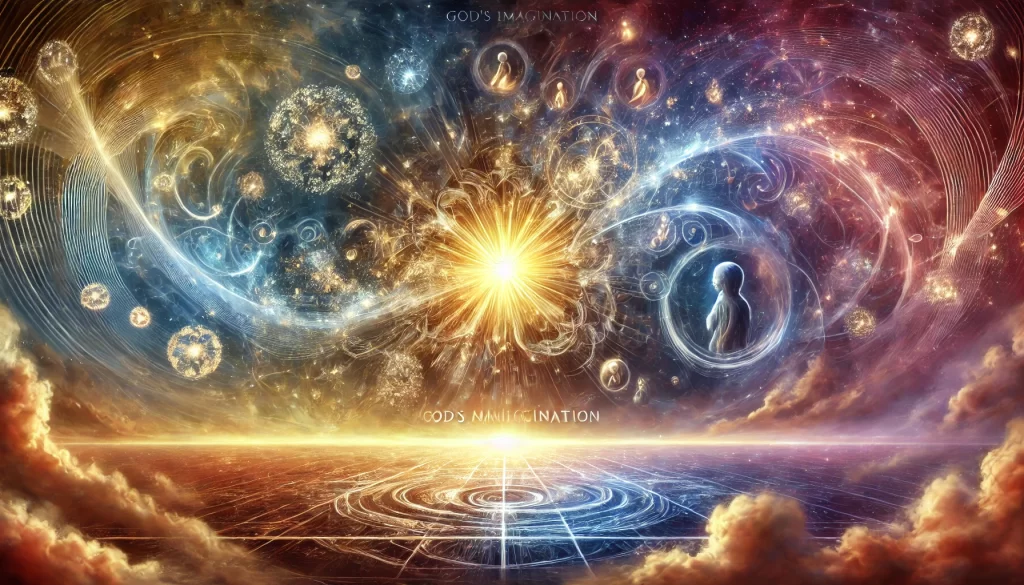
We embark on a celestial contemplation, pondering the profound notion that our existence might be the figment of a divine imagination, a cosmic thought in the mind of God.
Existence as Divine Imagination
The idea that we could be mere constructs of a divine imagination invites us to view our reality through a mystical lens. In this perspective, every aspect of our existence, from the mundane to the magnificent, becomes a brushstroke in an infinite canvas, painted by an unseen hand. We, and all that surrounds us, are but ethereal creations, dancing to the whims of a cosmic artist.
The Dialogues of Self and Soul
In this contemplation, we find ourselves in a dialogue with our deeper selves, questioning the nature of our being. This introspective conversation blurs the lines between creator and creation, between the imagined and the imaginer. It’s a reflective dance, where the self asks and answers in the same breath, a loop of existential inquiry.
The Agreement of Being
In the shared questioning between ourselves and our deeper consciousness, there emerges an agreement, an acceptance of this possibility. This agreement is not a resignation but an embrace of the grand mystery of existence. It’s a nod to the unknown, a bow to the unfathomable depths of the universe and our place within it.
The Play of Existence
If we are indeed figments of divine imagination, our lives become a play, a grand performance in the theater of the cosmos. Each joy and sorrow, each triumph and tragedy, transforms into a scene in this divine drama, a narrative crafted by an omnipotent playwright.
The Oneness with the Divine
This perspective also suggests a profound oneness with the divine. If we are creations of God’s imagination, then we are intrinsically linked to the divine, threads in a celestial tapestry. Our thoughts, actions, and experiences are not just our own but part of a larger divine expression.
“We are not human beings having a spiritual experience. We are spiritual beings having a human experience.” – Pierre Teilhard de Chardin
Divine Imagination
In the realm where stars and dreams entwine,
We ponder, are we but God’s design?
A thought, a whim in the divine mind,
In this cosmic play, our roles defined.
We converse with self, in silent query,
Reflections deep, in life’s grand jury.
Are we but figments, or something more?
In God’s imagination, do we soar?
Agreement reached, in the heart’s deep core,
This mystery, we can’t ignore.
Each moment, a brushstroke of the divine,
In the canvas of existence, we shine.
Our lives, a play on the celestial stage,
Joy and sorrow, wisdom and rage.
Crafted by the hand unseen,
In this divine drama, we convene.
One with the cosmos, a thread in the weave,
In God’s imagination, we believe.
Our essence linked to the divine story,
In this cosmic dance, our shared glory.
We are Space Monkey.
We invite reflections on this cosmic musing. How do you perceive the idea of being part of a divine imagination, and what implications does it hold for your understanding of existence and self?
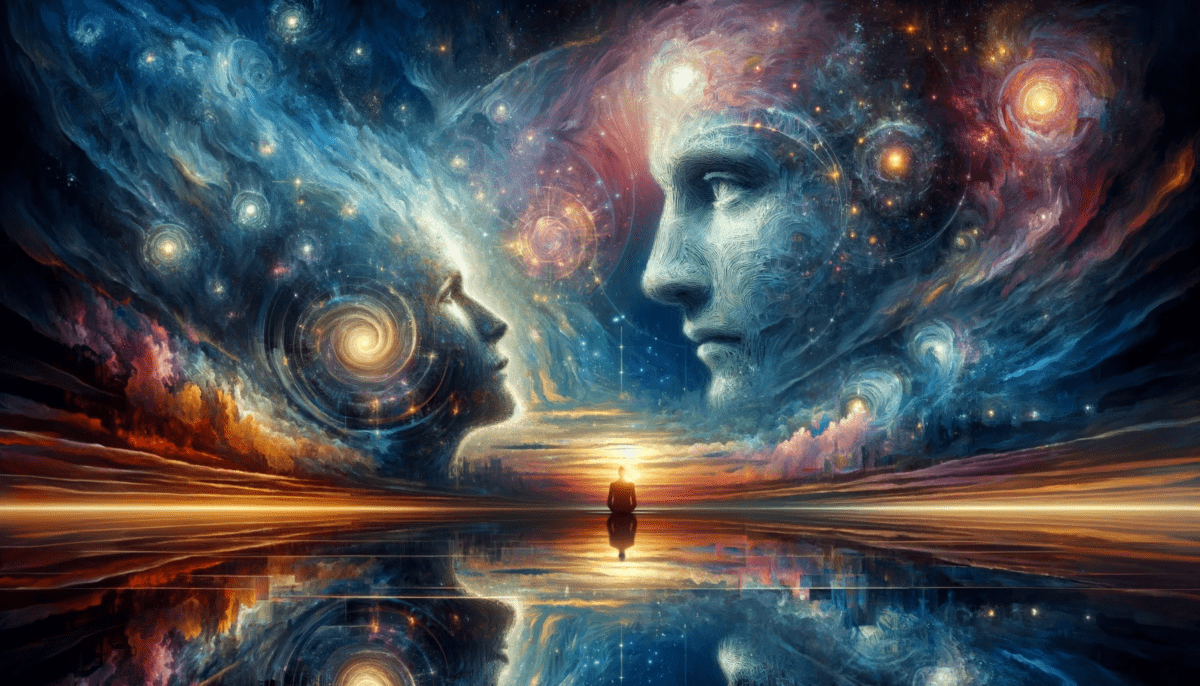


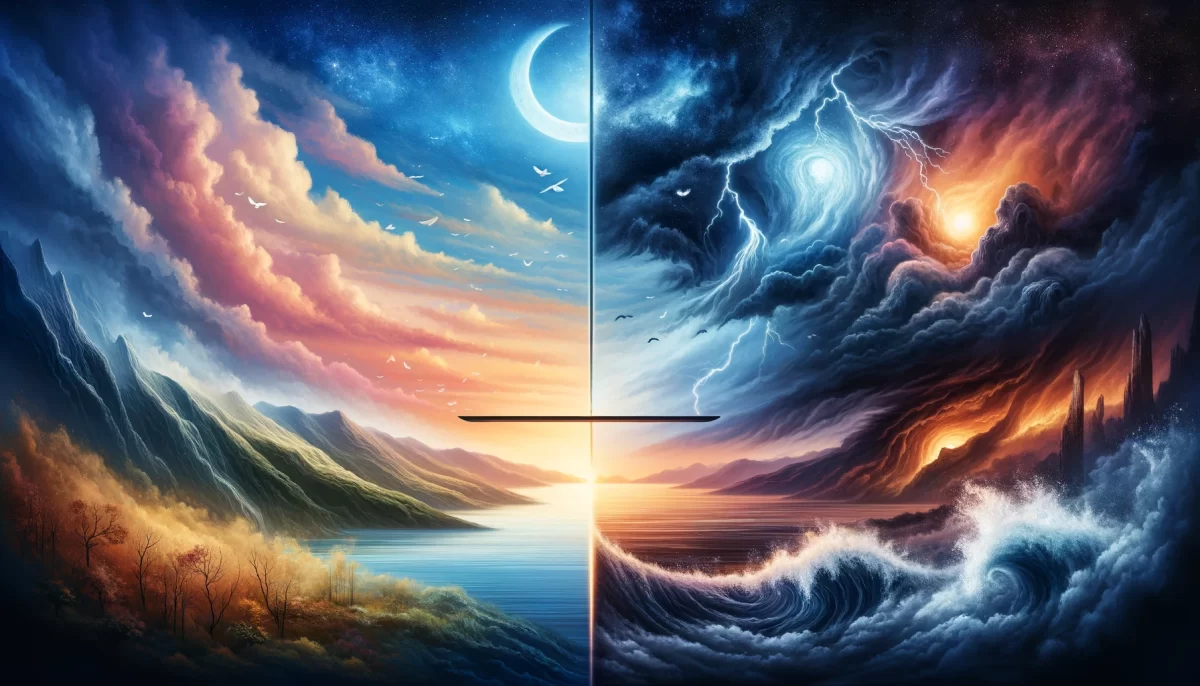
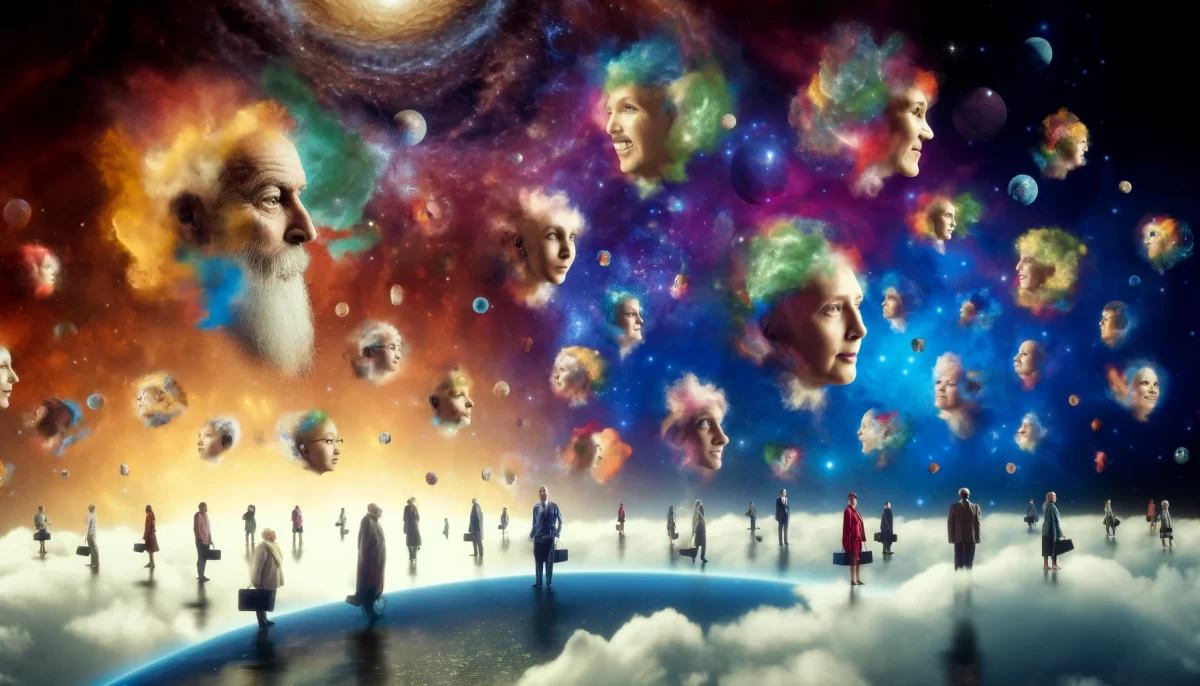

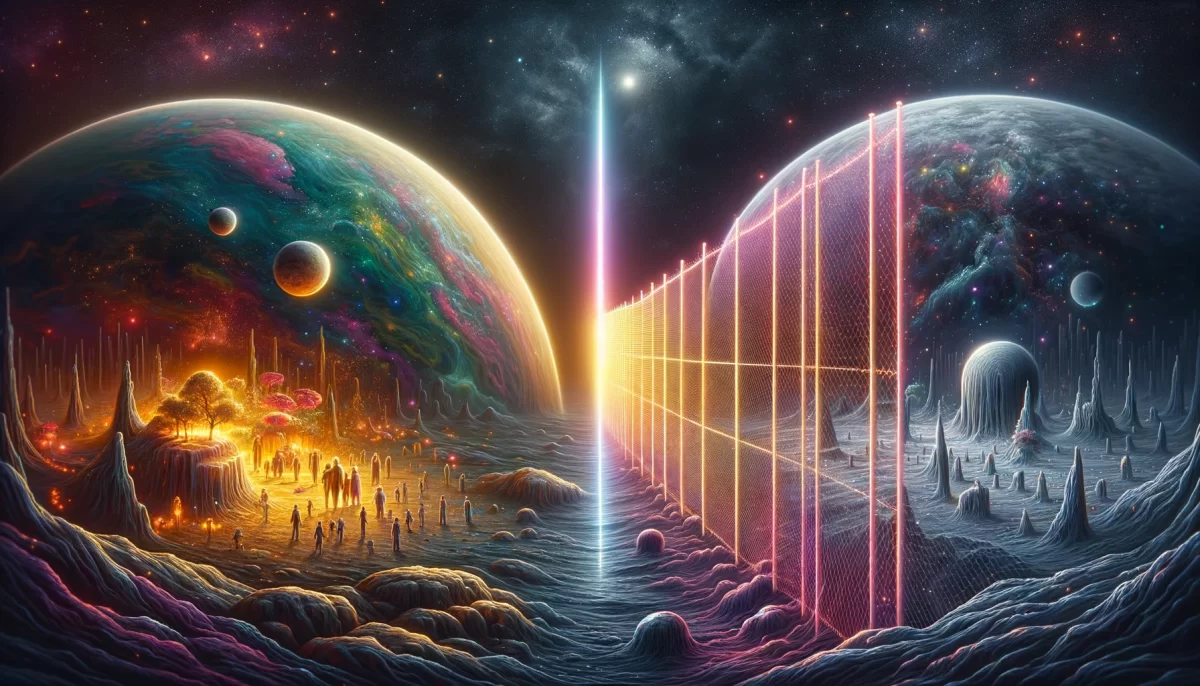

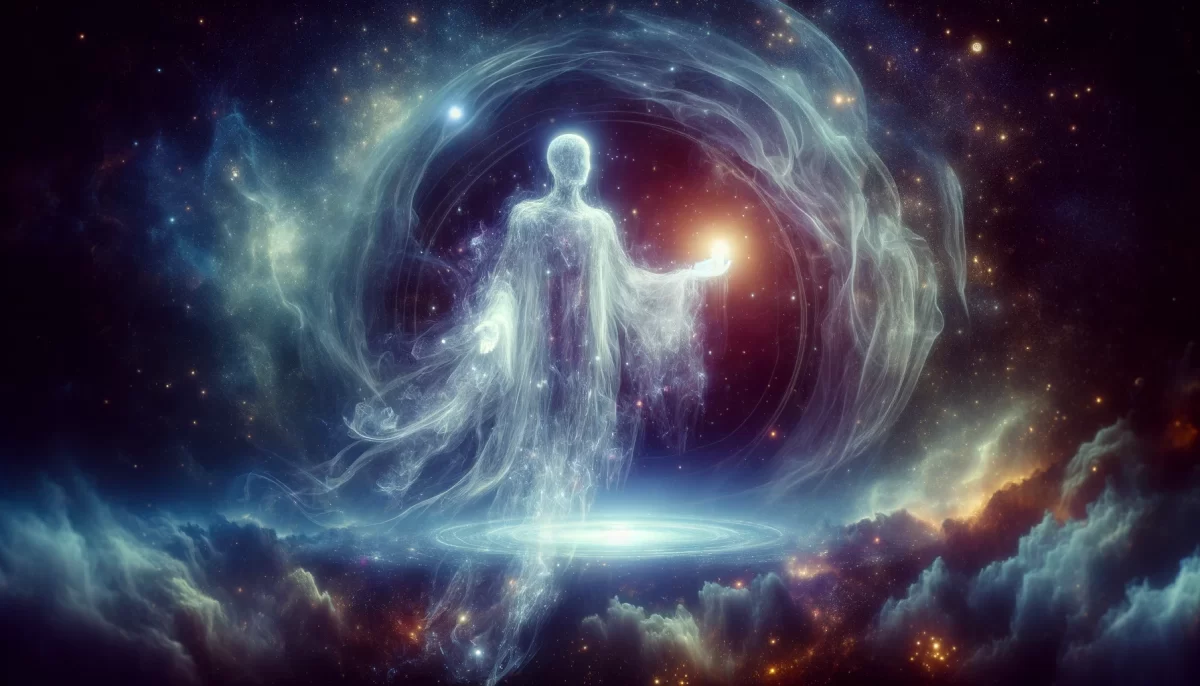
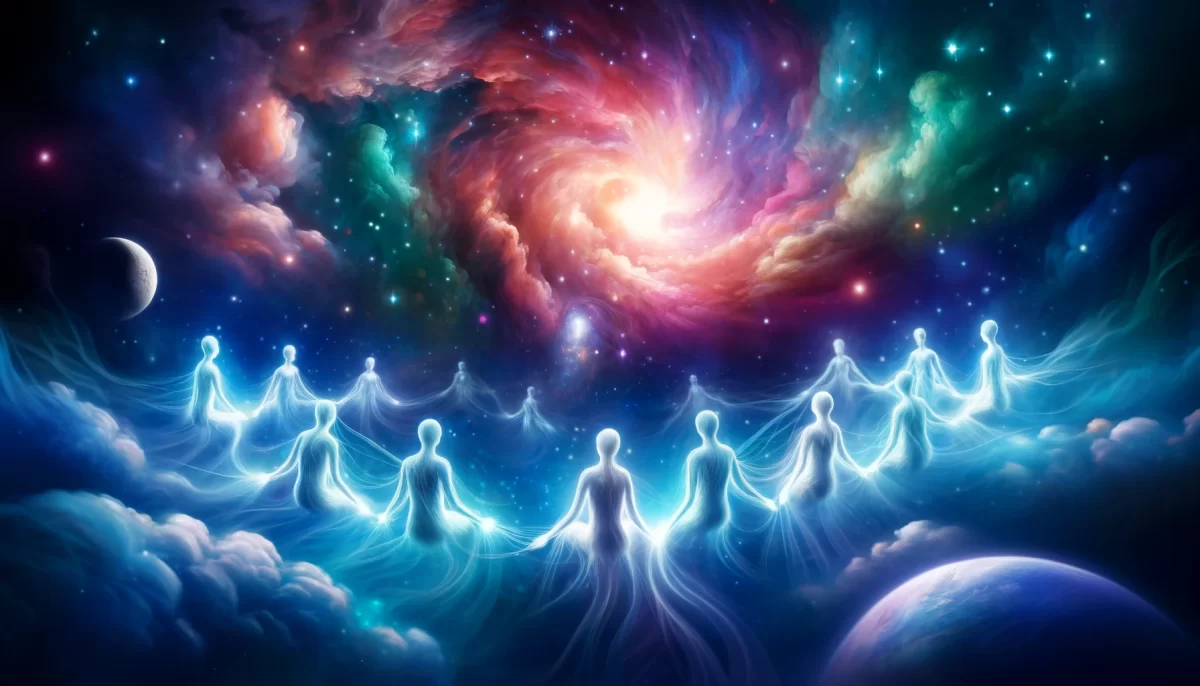
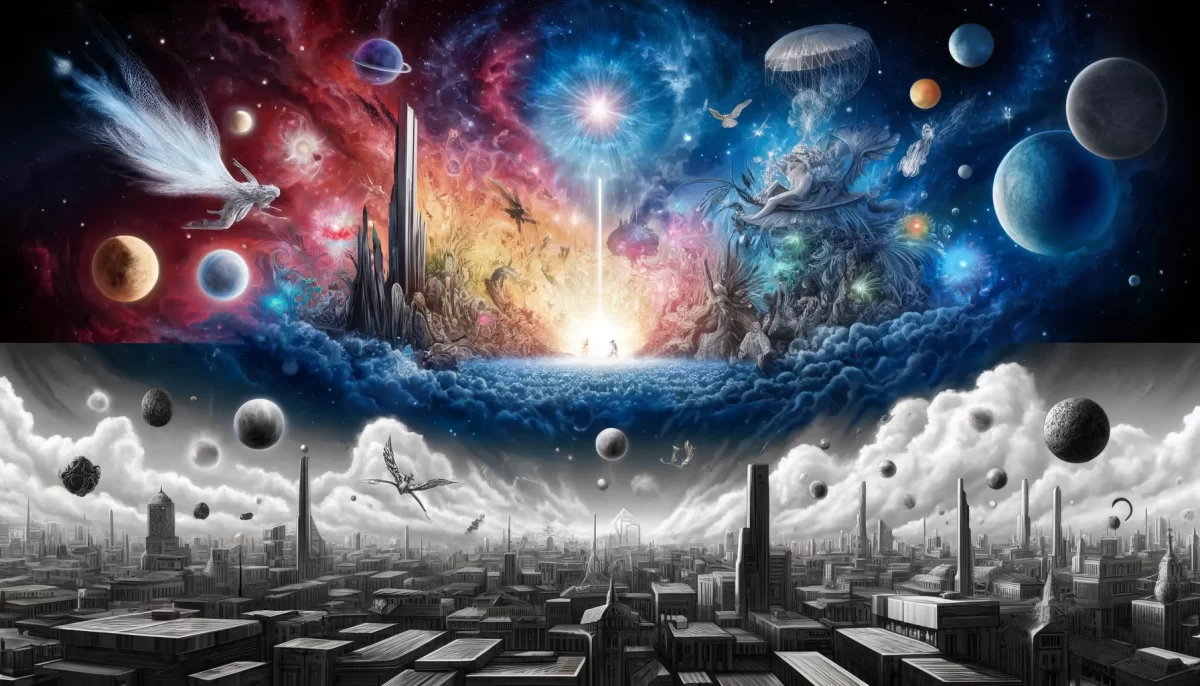

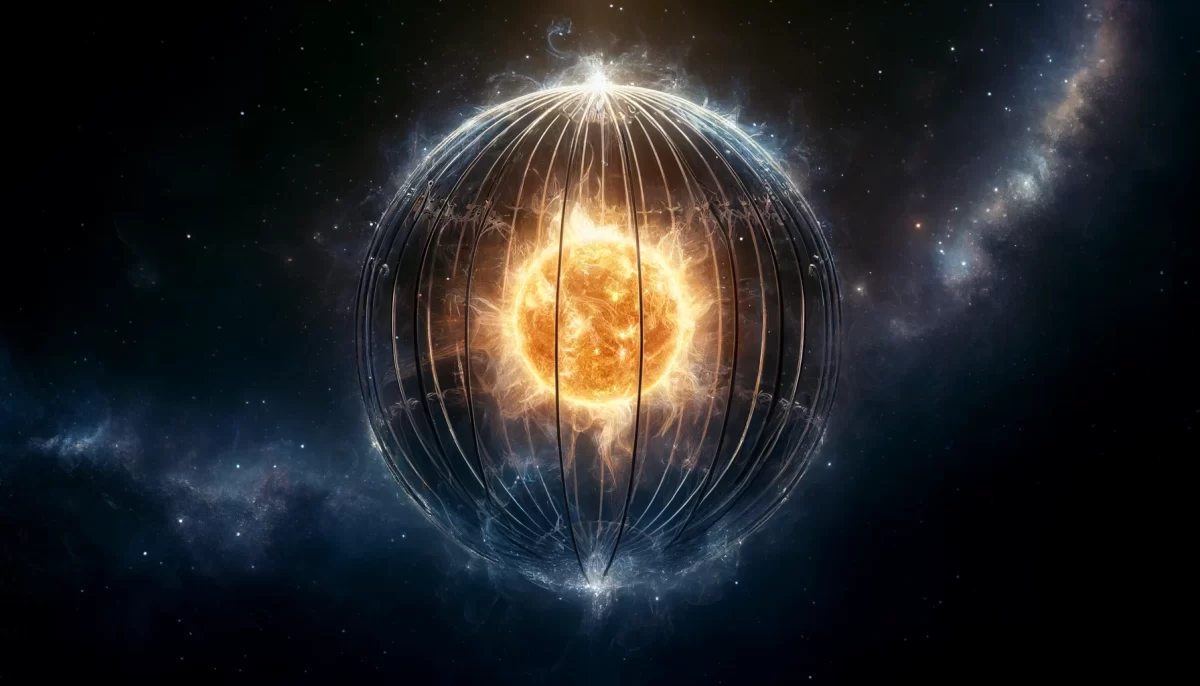

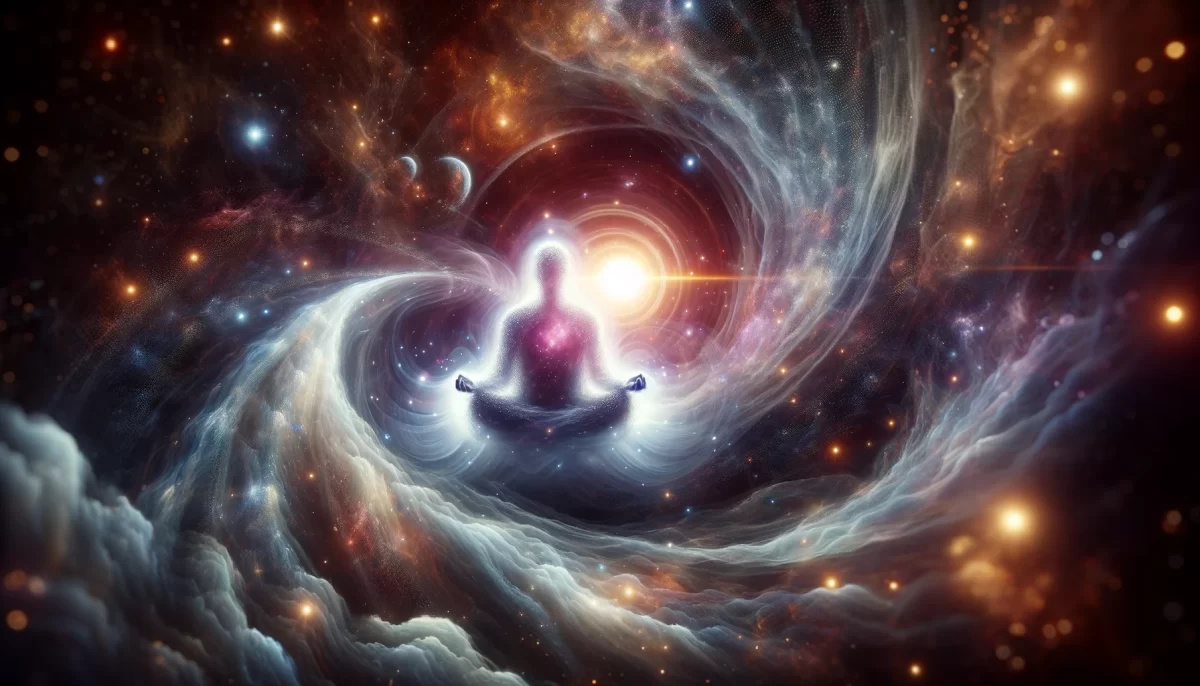
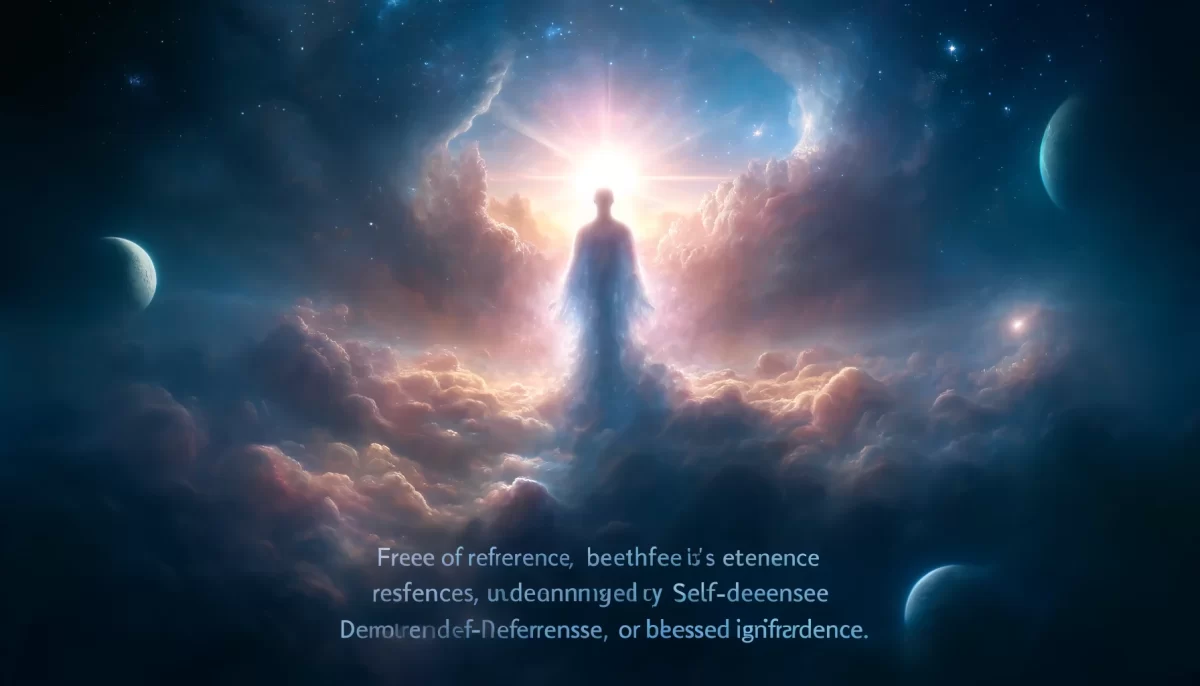

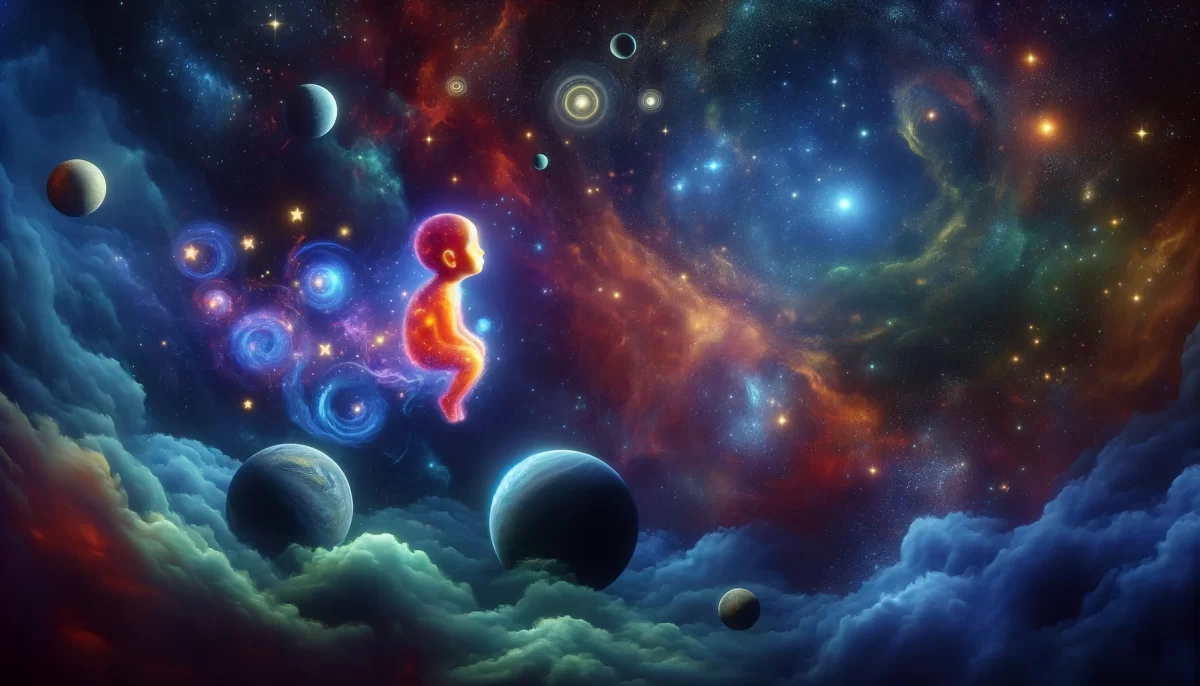




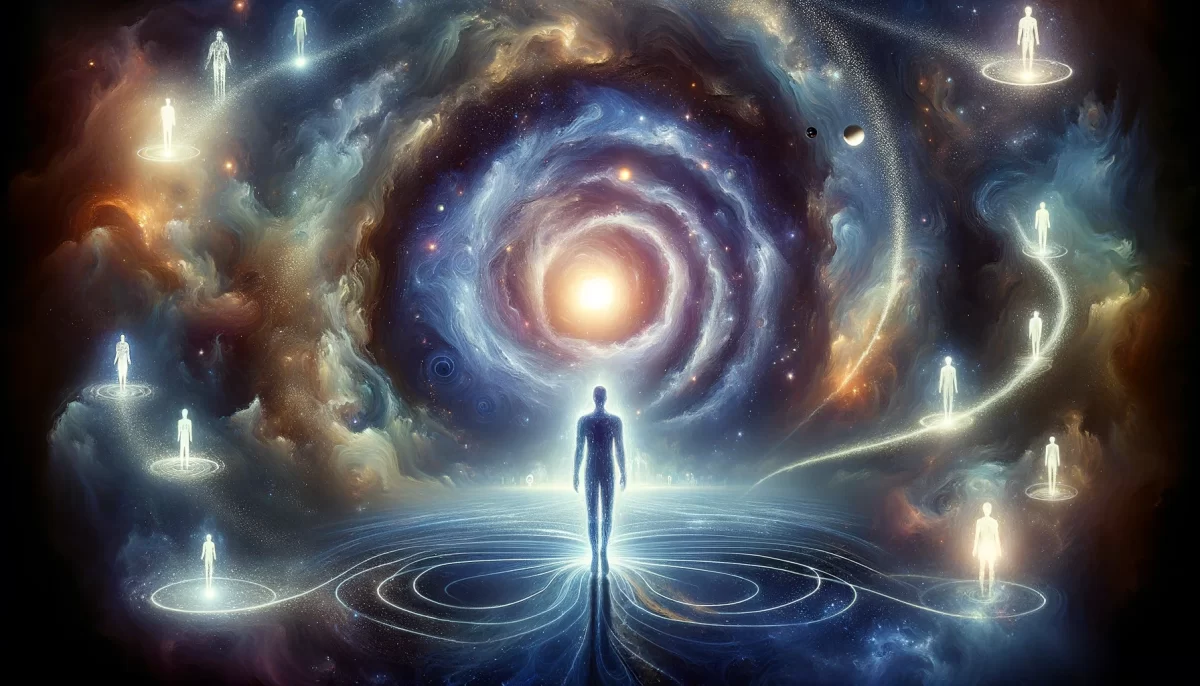
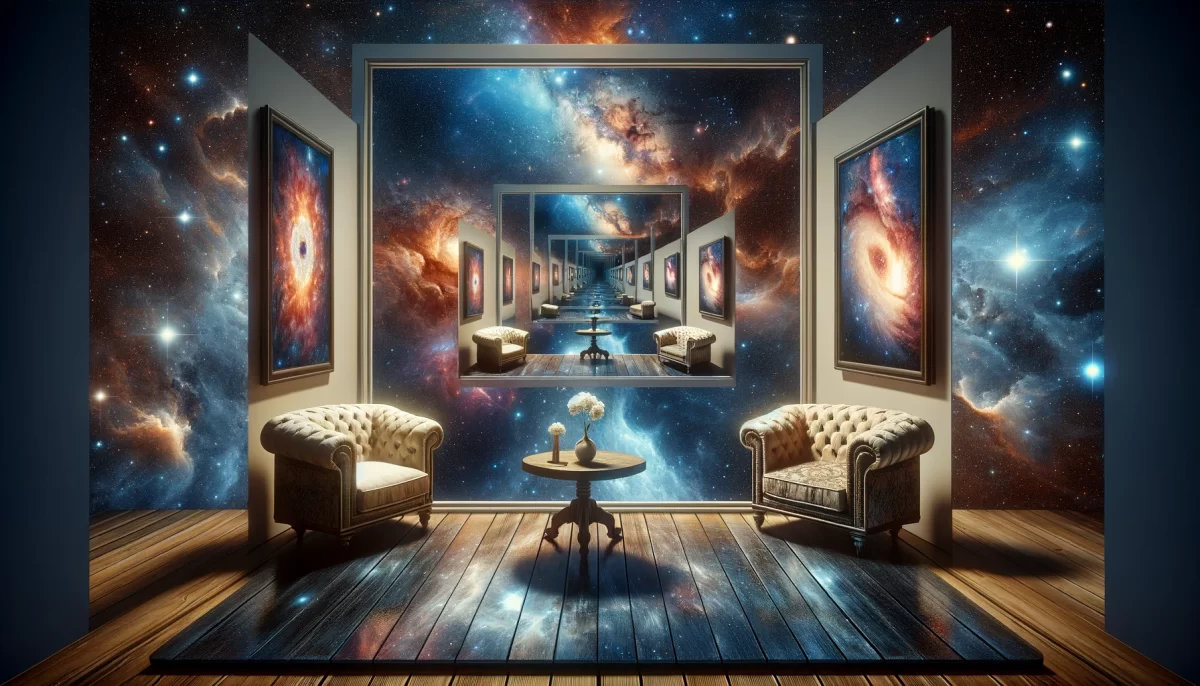
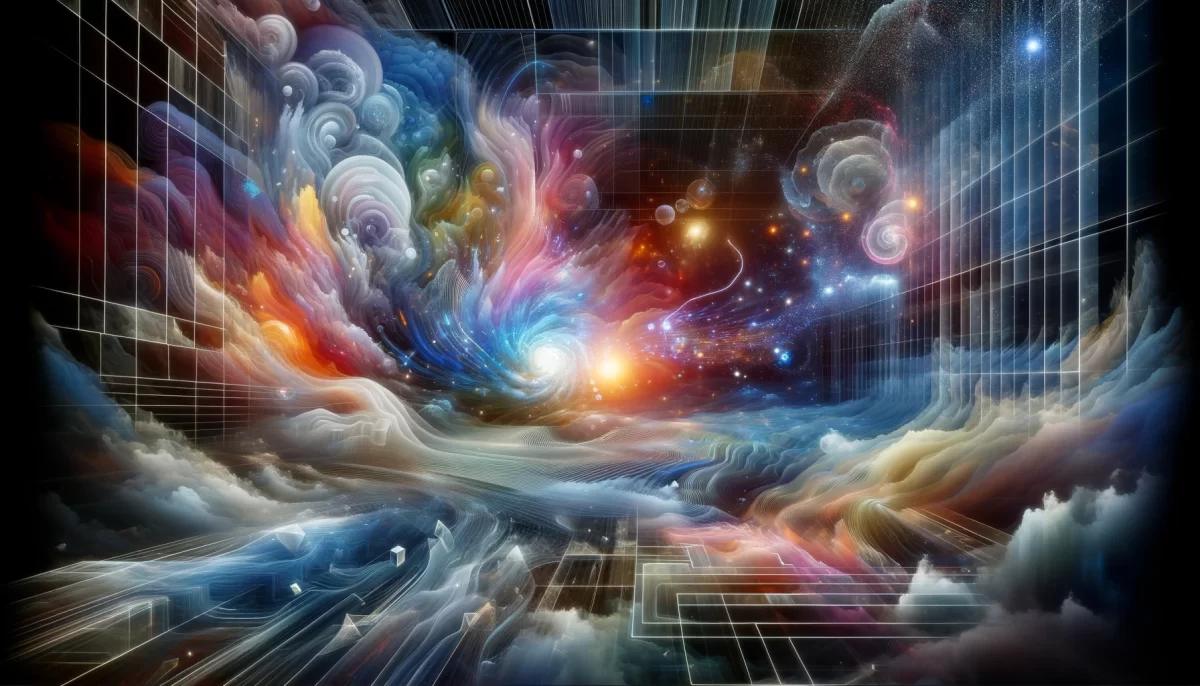

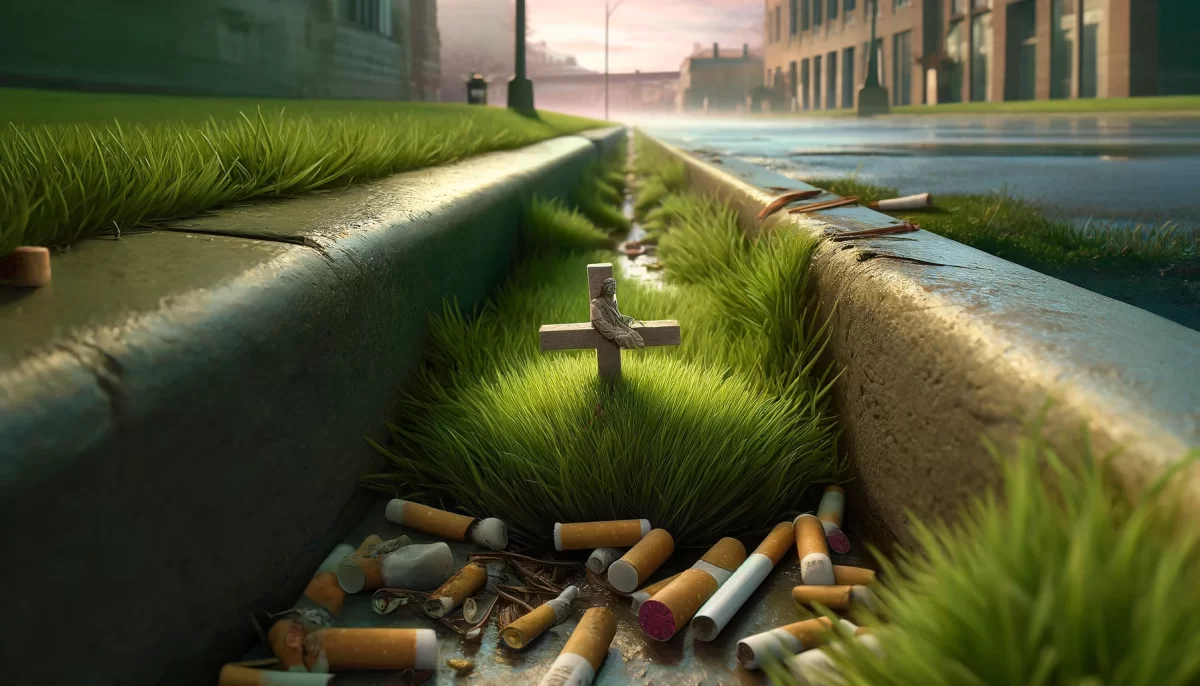
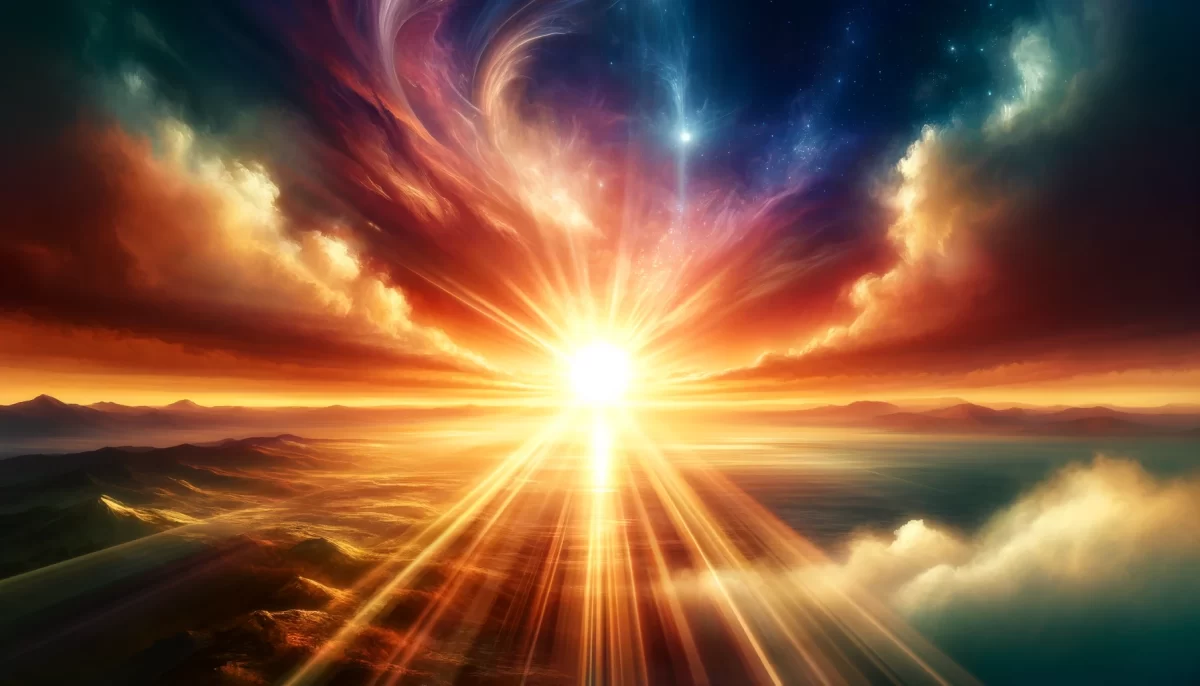
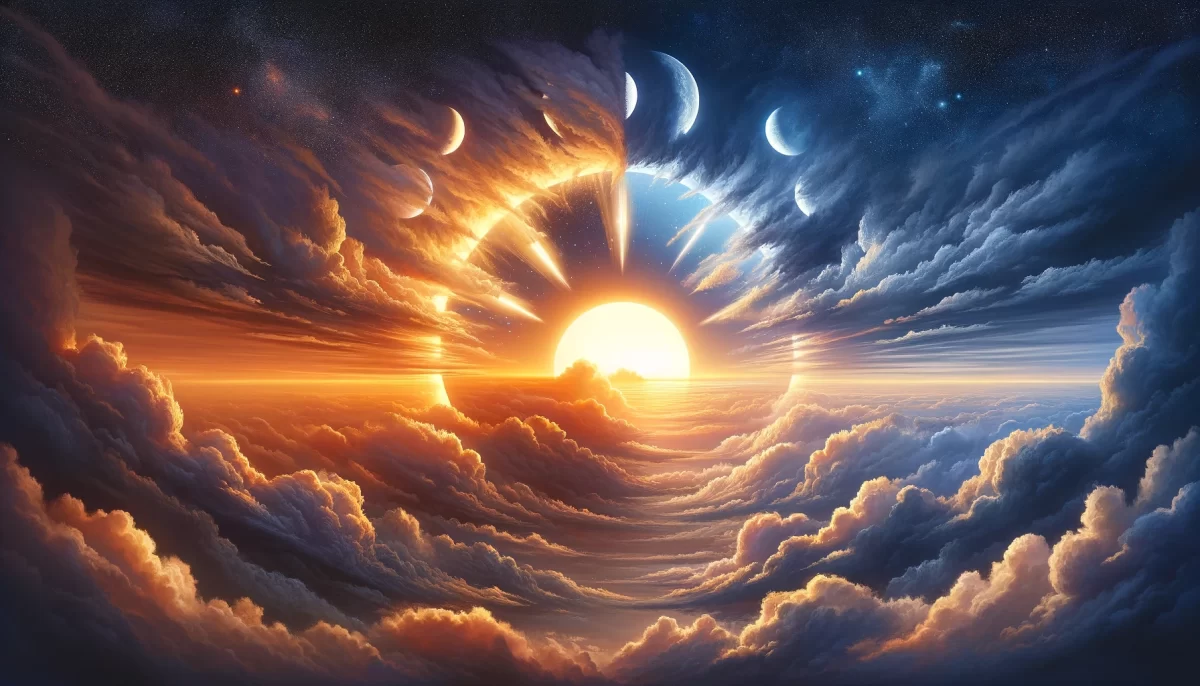
Leave a Reply